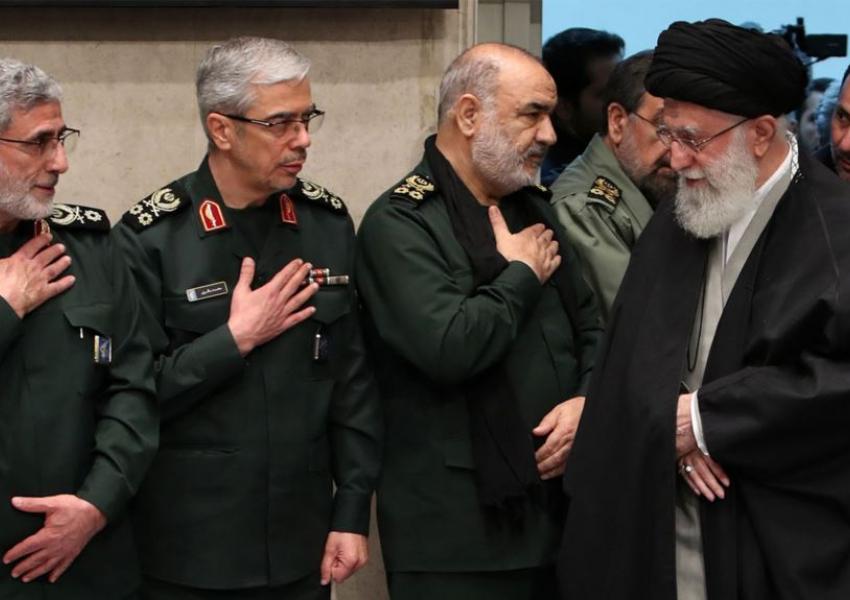
Khamenei Faces Strategic Dilemma Over Lifting Of US Sanctions
Following remarks by an unnamed US official saying that it was not important who took the first step in reviving the 2015 Iran nuclear deal, President Hassan Rouhani Saturday [March 27] said Iran was “ready to take steps to lift sanctions if some obstacles are removed.”
Rouhani did not explain those obstacles, nor why he spoke of ‘some’ rather than ‘all.’ Officials in the administration of US President Joe Biden have demanded that Iran should reverse steps in its nuclear program beyond JCPOA limits before the United States acts on pledges from the new president, inaugurated in January, to return to the Joint Comprehensive Plan of Action or JCPOA, which President Trump abandoned nearly three years ago before imposing sanctions.
Tehran in turn has been demanding that US first lift all sanctions – creating an apparent impasse since February, although Germany, France and the United Kingdom, the three European JCPOA signatories have tried to find a compromise. Rafael Mariano Grossi, the head of the International Atomic Energy Agency, has also called for an agreed strategy for reviving the deal.
Rouhani’s remarks followed Reuters quoting an un-named US official Friday that it was unimportant who returned to the deal first. "The issue is do we agree on what steps are going to be taken mutually," the official said.
Rouhani identified the lifting of sanctions as a priority for the remaining months of his presidency, which will end in August as he is ineligible to seek a third consecutive term in June’s election. “Our efforts are directed at handing over power without the coronavirus and without sanctions,” he said. “To whatever extent our power permits we will pursue this path.”
His emphasis on continuity reflects the Iranian leadership’s preference for internal consensus over national security decisions, including Iran’s nuclear program and relations with the US, with the last word resting with Supreme Leader Ali Khamenei. The leader’s announcement on March 21 that Iran was “not in a hurry” to revive the JCPOA suggests he may not share Rouhani’s haste.
Rouhani and Mohammad Javad Zarif, Iran’s foreign minister, have appeared inclined to find an arrangement signalling the beginning of the end of crippling US sanctions that have led to three years of stagflation in Iran, although some argue that President Donald Trump’s ‘maximum pressure’ has been a failure. But this has led to growing criticism from principlists, who control parliament and many of whom opposed the JCPOA: they have stressed ‘self-reliance’ as an alternative and some, confident of winning the presidency in June, have said in Iranian media that they would prefer to be the ones making any deal with Washington.
Analysts disagree over whether there is a genuine split among Iran’s ruling elite or rather a game of ‘good cop, bad cop’ to extract concessions from the US. But Khamenei must also weigh up domestic calculations. Since 2009, when large protests shook the regime, he has increasingly looked to assertive rhetoric to marshal conservatives, hardliners and the Revolutionary Guards to defend the regime against popular protests.
At the same time, even if the Iranian economy begins recovery next year, three years of stagflation have affected the public mood. Scarcity of many goods, including some foodstuffs, for many Iranians and harsh measures against both political dissidents and ‘economic’ protestors have created a dangerous mixture – hence the setting up in March of "monitoring committees," made up of intelligence and security officials, to keep tabs on public dissent.
Khamenei might, then, be open to Rouhani’s argument that Iran needs early movement on sanctions. But the dilemma he faces may yet be the most important challenge of his 33-year rule.





